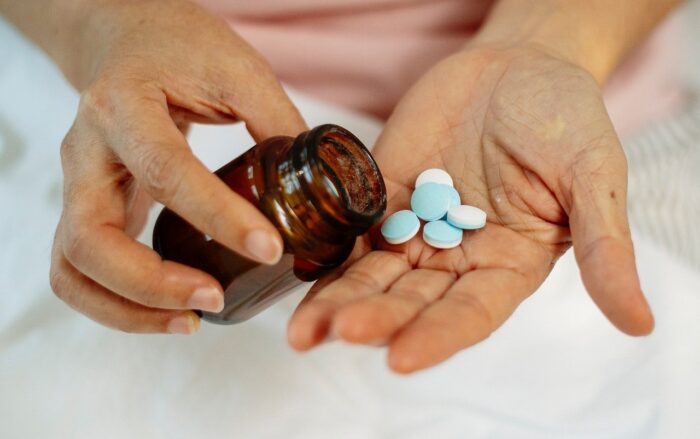Supplements & Vitamins for Depression
If you are suffering from depression, you might consider a range of different therapy techniques, including one-to-one therapy, cognitive behavioural therapy, group therapy or motivational interviewing.
However, most people are unaware that you can actually lessen your symptoms of depression by using things like supplements and vitamins. Whilst these things might not have been proven to cure depression, they might work to lessen your symptoms and make you feel more positive.
It is important to speak to your doctor, nurse or healthcare provider before taking any supplements, especially when you are already suffering from depression. This is because if you are suffering from depression then you might already be taking certain medications.
Therefore it is important to talk with your doctor before adding any other medications or supplements into your routine.
You will need to check that your doctor thinks that your supplement is safe and useful, and they will also want to check and monitor your dosage.

Depression is now a very common illness throughout the UK and the rest of the UK, and sufferers are constantly looking for the next best thing to try to cure themselves of their illness.
Moreso, after the Covid-19 pandemic more people than ever are experiencing depression, with the cost of living crisis that followed the Covid-19 pandemic adding another level of stress onto day-to-day life.
It is important to understand that not everyone who suffers from depression will be put on antidepressants right away. Whilst many people think that if they are put on antidepressants then this will cure them of their illness and depression, it isn’t always the case.
In fact, depression is treatable using a number of different medications, strategies and lifestyle changes. Most of the time, there isn’t one specific thing that ‘cures’ someone of their depression, it is usually a combination of things.
Usually, if you want to recover from depression then you will have to make a few lifestyle changes. This could include a number of things, and more people than ever are changing their diet and habits in order to try to recover from depression.
In fact, the importance of using supplements and vitamins to maintain a healthy body and mind has become increasingly widespread and understood.
What is depression?
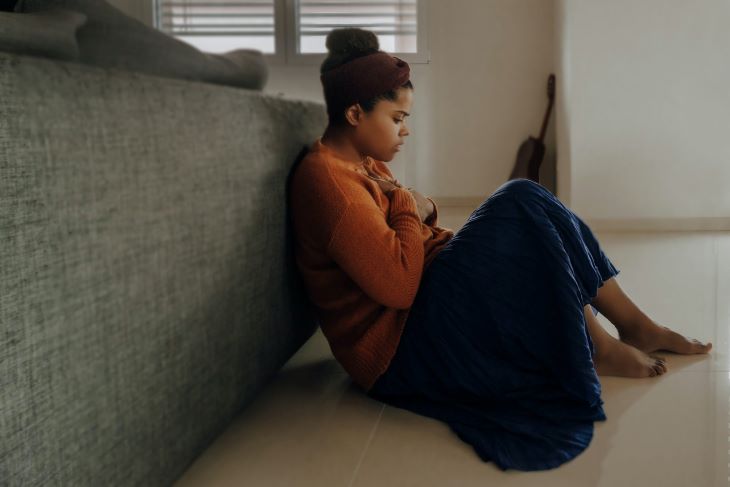
Unfortunately, depression affects millions of people across the world each and every year.
The National Institute of Health states that depression is used to sum up a number of feelings, including:
- Sadness
- Feeling angry
- Irritated
- Feeling very up and down
- Experiencing mood swings
- Feeling lonely
- Empty
These feelings are also accompanied by struggling to function day to day, with your emotions and depression taking over daily life.
Unfortunately, millions of people who experience depression do not know that they are going through depression, and do not seek medical help or advice from professionals.
This is because they do not take their feelings and depression seriously, and often push the issue to the bottom of their priority list.
However, there are a lot of treatment options for those who do get the help that they need.
For example, you might be offered a range of therapy techniques such as cognitive behavioural therapy, dialectical behavioural therapy, one-to-one therapy, group therapy or family therapy.
Your local GP or therapist might also suggest that you take some form of medication, and make certain lifestyle changes that are likely to reduce your symptoms and make your life more positive and productive.
In order to be diagnosed with depression, you must show at least five of the below symptoms and must have symptoms for at least two weeks.
Symptoms of depression
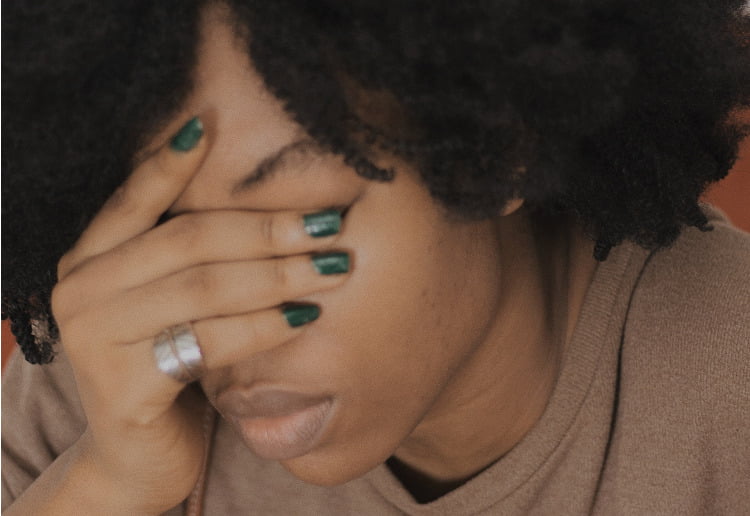
If you think that you or someone you know might be suffering from depression, then it is important to understand the different symptoms of depression.
Some common symptoms of depression are listed below.
- Feeling sad on a frequent basis
- Crying on a frequent basis
- Feeling hopeless and lost
- Feeling angry more often than normal
- Getting frustrated
- Feeling anxious
- Feeling lazy
- Feeling disinterested
- Feeling socially isolated
- Struggling to sleep (insomnia)
- Sleeping too much
- Not wanting to get out of bed in the mornings
- Not wanting to eat food
- Eating too much food (binge eating)
- Issues when it comes to concentrating or completing a task
Most doctors work on the basis that you have to show at least 5 of the above symptoms of depression in order to be diagnosed with depression.
Why Are Supplements and Vitamins Good at Tackling Depression?
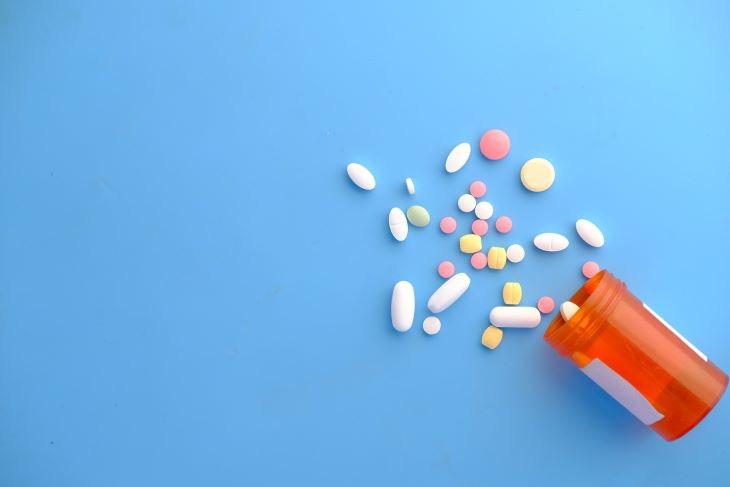
Supplements and vitamins are a great way of tackling depression and other mental health issues such as anxiety.
However, if you are considering taking supplements and vitamins in order to tackle your depression then you need to inform your doctor or healthcare professional as soon as possible, in order to check that they are safe and appropriate for you to take.
There are a number of vitamins, minerals, supplements and antioxidants that are currently sold to tackle depression and other mental health issues.
Whilst these are all marketed to treat your depression, it is important to understand that vitamins and supplements will not cure you, they will simply work to reduce the symptoms that you experience.
If there is a root cause of your depression, then no amount of supplements or vitamins will deny that.
Lots of medical professionals might recommend that you start to take certain supplements or vitamins in the early days of your treatment to make it more manageable.
Alternatively, they might recommend that you take certain supplements alongside other medications to aid recovery and reduce your symptoms.
Vitamins and supplements are a good way of treating and reducing your depression symptoms because they add nutrients and chemicals back into your body that you are otherwise lacking, which your body and mind need in order to function properly.
You are more likely to benefit from taking supplements and vitamins if you have been tested for nutrient deficiencies.
You are also more likely to benefit from supplements and vitamins if you are already taking antidepressant medications, as they tend to work well alongside antidepressants.
It is important to note that you will most likely be recommended for vitamins and supplements in the early stages of your depression, and when you only suffer from mild symptoms.
Why supplements and vitamins might not work for you

There are a number of reasons why certain supplements and vitamins commonly used for depression might not work for you.
If you are worried about taking a particular supplement or vitamin, and wonder if they are suitable for you, then the best thing that you can do is ask your doctor, local GP or healthcare provider.
If you are already taking medication for your depression then you will always need to check with your local GP before taking any form of supplement, vitamin or medication.
This is because some supplements and vitamins are not monitored by medical authorities, so it is sometimes difficult to know exactly what is in the tablet or supplement that you are taking.
You should be particularly cautious when it comes to taking certain supplements and vitamins if you are struggling with very severe depression.
This is because you will need to be given more standardised medication and treatment so that you have the best chance of recovering.
Taking supplements and vitamins will not cure you of your depressionbparticularly if your depression is very severe and if you have been suffering from depression for a number of years.

If you are taking SSRIs (Selective Serotonin Reuptake Inhibitors), then you should also avoid taking supplements and vitamins to cure you of your depression.
This is because certain supplements and vitamins create a serotonin syndrome if taking alongside SSRIs.
This will increase the amount of serotonin within the brain, making it difficult for your brain to process it all.
As a result, you might get the shakes, feel sick, or in some more serious cases, struggle to breath or experience a seizure.
You should also avoid taking supplements and vitamins if you are taking certain medications and drugs such as HIV drugs, blood thinning medication, contraceptive pills or medication for cancer such as chemotherapy and radiotherapy.
If you are taking any medication for bipolar disorder, then you should also check with your local GP before taking any supplements or vitamins for depression, as some have been known to worsen symptoms of bipolar disorder.
If you are currently pregnant or breastfeeding, then you should also check with your doctor before taking any medication, including supplements and vitamins.
Third-Party Testing
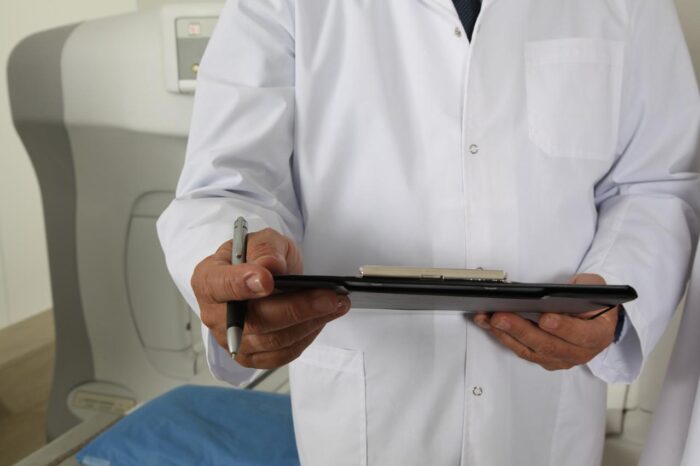
When considering taking supplements and vitamins, there are a number of things that you should always be looking out for when choosing them.
One of the most important things that you should look out for is whether the supplements or vitamins have been third-party tested.
This means that the supplements and vitamins have been sent off to a scientific lab to check that they are everything that they say they are and have not been contaminated with anything else in the manufacturing process.
The best supplements and vitamins for depression
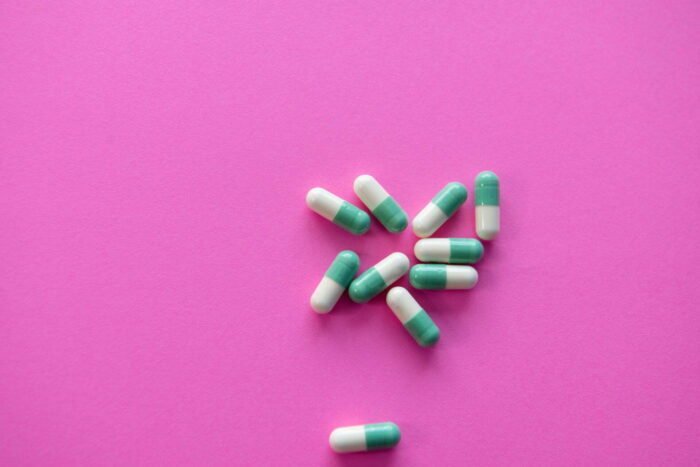
Vitamin B
Vitamin B is one of the most common vitamin supplements taken throughout the UK. There is also a lot of evidence that suggests that Vitamin B has now been proven to help with symptoms of depression.
This is mainly because vitamin B helps to control different chemicals in your brain, and helps to regulate your mood by controlling the serotonin levels in your brain.
Vitamin B is highly useful for regulating other neurotransmitters such as GABA and dopamine, both of which if in depletion will contribute to depression and sadness.
If you do not have enough Vitamin B in your body then you are a lot more likely to experience feelings of depression and anxiety. A lack of vitamin B will also mean that it is a lot harder to recover from depression if you are already suffering from depression.
Unfortunately, millions of people across the world lack vitamin B, which is why it is important to make sure that your body is getting enough if you are at risk of suffering from depression.
Zinc
Zinc is also another vitamin that is incredibly important when it comes to a healthy body and mind.
In fact, many studies have now shown that zinc is actually crucial to a healthy brain, as it helps to control the neurotransmitters in your brain that are responsible for feeling positive.
If you lack zinc in your body, then you are more likely to experience depression than if you had significant levels of zinc.
Magnesium
Magnesium is another mineral that is crucial to a healthy body and mind. Whilst there is more research needed to establish the exact relationship between magnesium and depression, there are now a number of studies that have shown that magnesium is useful for reducing the severity of depression and the symptoms that come with it.
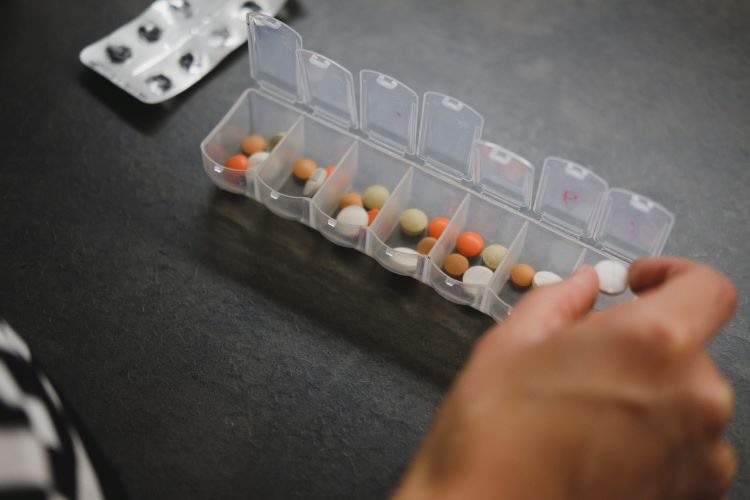
Vitamin D
If you live in the UK, then your body is probably lacking in vitamin D. This is because we get our vitamin D from the sun and if you live in the UK then you will be well aware that we are not blessed with the sun.
In fact, lots of studies have now shown that most people across the UK do not have sufficient levels of vitamin D.
Unfortunately, people who suffer from a lack of vitamin D are also more likely to suffer from depression at some point throughout their life.
This is why a lot of people throughout the UK experience seasonal affective disorder (also known as SAD) throughout the winter months. SAD is a mild form of depression that people experience when they do not get enough vitamin D during this time of the year.
Vitamin B12
Vitamin B12 is another popular vitamin used to combat depression. This is because a lack of vitamin B12 will make it harder for your body to absorb what it needs from the food and nutrients that you need.
For example, people who struggle with gut or digestive issues tend to struggle to absorb the nutrients that they need from the food they get. This will naturally lead to increased levels of sadness and could lead to depression, as your body and brain struggle to get what they need in order to function.
Folate (B9)
Studies have proven that a lot of people who suffer from depression also suffer from a lack of folate in the body. Most studies into folate found that most people get their folate from the food that they eat, as opposed to vitamins.
Whilst most people who suffer from depression also suffer from weight loss, it isn’t surprising that they also suffer from a lack of folate in the body.
A folate deficiency has also been linked to a lack of serotonin in the body, which will naturally result in an increased chance of depression.
Vitamin C
Vitamin C has been proven to lower levels of stress in the body and fight off depression.
You can get a lot of vitamin C from foods such as oranges, lemons, bell peppers, strawberries, tomatoes, broccoli, cabbage, cauliflower, potatoes and kiwis.
To find out more information on the nutrients you might need to live a healthy life, read our page on nutrients here.
However, a lot of people who suffer from depression might suffer from a reduced appetite for these types of foods, which is why it is important to take vitamin C supplements if you are at risk of developing depression or are already suffering from symptoms of depression.
Niacin (B3)
Niacin (also known as B3) is used to break down food and nutrients for your body to absorb. It also works as an antioxidant, manages your libido, helps to break down acids in your body and helps to reduce cholesterol.
When your body doesn’t get enough niacin (B3) then you are more likely to feel depressed, struggle with anxiety and suffer from memory loss.
Calcium
Many studies have now found that a lack of calcium in the body might result in a range of different mental health issues, including depression.
People who also abuse alcohol on a regular basis are also a lot more likely to be deficient in calcium and also suffer from depression.
If you are deficient in calcium then you are likely to suffer from brittle bones that break easily, mood swings, muscle twitching, heart palpitations, insomnia and anxiety.
Iron
Iron is a really important mineral when it comes to maintaining a healthy body and mind, and yet a lot of people across the UK and the rest of the world are deficient in iron.
People who don’t eat meat or a lot of healthy food might be deficient in iron, which means that their red blood cells aren’t able to carry as much oxygen around the body as they might need to.
If you suffer from an iron deficiency then you will most likely feel dizzy and light headed on a regular basis and won’t have much energy for exercise.
Iron and dopamine are closely linked, and for this reason has been linked to depression.
Other Ways to Avoid and Reduce Depression

Whilst vitamins and supplements are a great way of maintaining a healthy body and avoiding depression, you will need to check with your local GP or healthcare provider to check that you are able to take these vitamins and supplements safely.
There are a number of other ways that you can reduce your symptoms of depression and avoid becoming depressed in the first place.
Below are some of the most popular and common ways that you avoid feeling depressed.
Exercise on a regular basis
If you are struggling with depression or are worried that you might become depressed, then you should start to exercise on a regular basis.
Physical activity has been proven to increase the levels of dopamine and serotonin in your body, both in the long and short term.
You also do not have to do a two-hour workout in order to feel better after exercising – why not try a 30-minute walk midday, or a half-an-hour-trip to the local gym or swimming pool?

Get enough sunlight
As mentioned above, people living in the UK often do not get as much vitamin D as they need in order to function properly. This is why you should aim to get as much sunlight as possible, especially during the winter months if you live in the UK.
You should try to go on a few daily walks in order to get some sunlight.
If you work from home, you might struggle to get out of the house as much as you might like to.
Try to position your desk close to a window and keep your window open when you can to get some sunlight and fresh air.
Turn off your phone and have a digital detox
It is no surprise that spending time on your phone or laptop contributes to feelings of sadness and depression. There are a number of reasons behind this, with social media in particular being responsible for creating unrealistic expectations and feelings of depression.
The blue light that you expose yourself to from your phone and laptop has also been proven to contribute to a lack of sleep (insomnia), which can also lead to depression and other mental health issues.

Socialise with friends and family members on a regular basis
Unfortunately, people are socialising less and less. Whilst people might feel more connected online than ever before, due to social media and technology, the number of people who socialise in person is significantly less than it used to be.
So, if you are struggling with symptoms of depression then make sure that you meet up with friends and family members face to face to get some human interaction. After all, humans are social creatures.
Avoid stress as much as possible
If you are at risk of suffering from depression, then you should try to avoid stressful situations when you can. This might mean that you avoid having arguments with certain people, ask for help from family or friends or ask to take some leave from work.
Eat a healthy, balanced diet
Diet plays a huge role when it comes to your physical and mental health.
If you want to try to avoid depression or want to feel better if you are already feeling depressed, then try to eat a healthy, balanced diet.
Try to eat more vegetables and fruits, including foods that contain a lot of zinc, vitamin C and antioxidants.
Try to fill your diet with things such as broccoli, carrots, nuts, seeds, fish, milk, beans, peas, poultry and yoghurt.
Speak to someone at Rehab Recovery

If you think that you are at risk of getting depression, or already feel the symptoms and depression, then you should speak to your local GP or to someone at the Rehab Recovery team.
Our team of specialists will be able to advise you on the best places to get treatment for your depression, and all enquiries are dealt with quickly and in complete confidence.
Start by calling our team at Rehab Recovery on 0800 088 66 86 or by visiting us online at www.rehab-recovery.co.uk.


